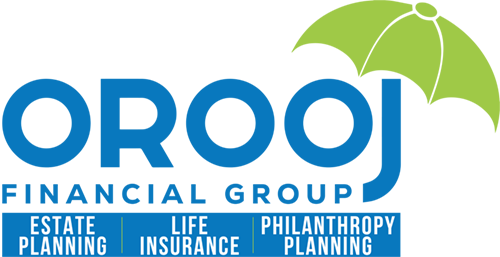When it comes to managing your finances, choosing the right financial advisor is crucial. Mississauga offers a variety of options, but how do you know who’s the best fit for you? In this guide, we’ll walk you through the steps to find the best financial advisor in Mississauga, ensuring your financial future is in capable hands. Understand Your Needs Before you start searching, take a moment to understand what you need from a financial advisor. Are you looking for help with retirement planning, investment management, or tax strategies? Different advisors specialize in different areas. Knowing your goals will help narrow down your choices. Research Qualifications Not all financial advisors are the same. It’s essential to check their qualifications. Look for certifications like Certified Financial Planner (CFP) or Chartered Financial Analyst (CFA). These designations indicate that the advisor has met rigorous standards. You can verify these credentials through professional organizations like the Financial Planning Standards Council or CFA Institute. Consider Experience Experience matters. Advisors who have been in the industry for several years have likely handled a variety of financial situations. Ask potential advisors how long they’ve been practicing and about their experience with clients who have similar financial goals to yours. Look for Fiduciary Responsibility A fiduciary advisor is legally obligated to act in your best interest. This is an important distinction. Fiduciary advisors are required to provide advice that’s best for you, rather than what might be more profitable for them. To ensure you’re working with a fiduciary, you can ask directly or check their status on the Financial Planning Association website. Evaluate Their Approach How an advisor works with clients can tell you a lot about whether they’re the right fit. Some advisors offer comprehensive financial planning, while others might focus solely on investments. It’s essential to find someone whose approach aligns with your needs. Ask about their process and how they tailor their advice to individual clients. Check Reviews and Testimonials Reviews and testimonials can provide insight into an advisor’s reputation. Look for reviews online, or ask the advisor for references from current or past clients. Sites like Better Business Bureau and Google Reviews are good places to start. Meet Multiple Advisors Don’t settle on the first advisor you meet. Schedule consultations with a few different advisors. This will give you a better sense of who you feel comfortable with and who you trust. During these meetings, ask about their fees, services, and how they will help you achieve your financial goals. Consider Accessibility Is the advisor easy to reach? Will they be available when you need them? Accessibility is important. You want an advisor who will be there to answer your questions and guide you through financial decisions. Make sure they have a communication style that works for you, whether that’s in-person meetings, phone calls, or video conferences. Understand Their Fee Structure Financial advisors have different fee structures. Some charge a flat fee, while others earn a commission based on the products they sell. It’s essential to understand how your advisor gets paid, as this can influence the advice they provide. Transparent advisors will clearly explain their fees upfront. Trust Your Instincts Finally, trust your instincts. The best financial advisor in Mississauga for you is someone you feel comfortable with. You should have confidence in their ability to manage your finances and guide you toward your goals. Conclusion Finding the best financial advisor in Mississauga doesn’t have to be overwhelming. By following these steps, you can make an informed decision and choose an advisor who will help you secure your financial future. Remember, this is a partnership, so take your time and choose wisely. For more tips on financial planning, visit trusted sources like Investopedia or the Canadian Securities Administrators.
Author Archives: zahidss1239
How Orooj Financial Group Stands Out as the Top Financial Advisor in the GTA
Choosing the right financial advisor in the GTA is crucial. Orooj Financial Group excels in providing top-notch financial advisory services, focusing on personalized solutions and comprehensive financial planning. Expertise and Experience Zahid Syed, founder of Orooj Financial, has over 23 years of experience. With certifications like CLU and MFA-P, he is well-equipped to provide expert advice. These credentials ensure high standards and ethical practices. Comprehensive Service Model Orooj Financial Group collaborates with a network of professionals, including lawyers, tax advisors, and insurance specialists. This integrated approach ensures that all aspects of your financial needs are addressed. Their services include estate planning, business succession planning, and tax planning. Client-Centric Approach Orooj Financial Group places clients at the center of their practice. They offer tailored solutions for various client profiles, such as physicians, corporate professionals, and wealthy families. Trust and transparent communication are their cornerstones. Innovative and Proactive Strategies The firm employs advanced strategies like generational planning, trust planning, and charitable giving. These strategies aim to minimize tax burdens and maximize the preservation of wealth for future generations. Community Engagement and Education Orooj Financial Group is committed to educating their clients and the broader community. They offer complimentary webinars and consultations, providing valuable insights into financial planning. Testimonials and Success Stories The success of Orooj Financial Group is reflected in the testimonials from their clients. These stories highlight the long-term impact of effective financial planning and the trust clients place in their services. Orooj Financial Group stands out as the top financial advisor in the GTA due to their extensive experience, comprehensive service model, client-centric approach, innovative strategies, and community engagement. Schedule a complimentary consultation or attend a webinar with Orooj Financial today to start your journey towards financial security. Contact Orooj Financial.
Creating a Will as a Business Owner in Canada | Top Financial Advisor in GTA
Creating a will is a fundamental step for business owners to ensure their business and personal assets are managed according to their wishes after their passing. A well-crafted will can protect your business, provide for your family, and ensure a smooth transition of ownership. In this guide, we will provide comprehensive suggestions and tips for creating a will as a business owner in Canada, including research data and a small case study to illustrate the importance of proper estate planning. As the Top Financial Advisor in the GTA, Orooj Financial Group is here to help you navigate this essential process. Why Creating a Will Is Essential for Business Owners A will serves as a legal document that outlines your wishes regarding the distribution of your assets upon your death. For business owners, it is particularly important as it ensures the continuity of your business, minimizes potential conflicts among heirs, and addresses tax implications effectively. Without a will, your business may face legal disputes, financial instability, and unnecessary tax burdens. Key Components of a Business Owner’s Will Identification of Business Assets Clearly define what constitutes your business assets. This includes physical property, intellectual property, shares, and other financial interests. Designation of Beneficiaries Specify who will inherit your business assets. This could be family members, business partners, or third parties. Appointment of an Executor Choose a trustworthy and capable executor who will ensure your wishes are carried out. This person will manage the probate process and oversee the distribution of your assets. Inclusion of a “Carry On Business” Clause This clause allows your executor to continue operating your business, ensuring that it remains functional until a decision is made about its future. Consideration of a Dual Will A dual will separates personal and business assets, potentially reducing probate fees and simplifying the estate administration process. Provisions for Debt and Tax Obligations Address how outstanding debts and tax liabilities will be managed. This is crucial for maintaining the financial health of your business. Comprehensive Tips for Creating a Will Consult a Professional Engage with a legal advisor or financial planner, such as Orooj Financial Group, to ensure your will complies with Canadian laws and effectively addresses your unique business needs. Regularly Update Your Will Review and update your will periodically to reflect changes in your business structure, personal life, or financial situation. Communicate Your Wishes Discuss your plans with your family, business partners, and any other stakeholders to avoid surprises and potential disputes. Plan for Succession Develop a detailed succession plan that outlines how your business will be managed or transferred after your passing. This can include identifying potential successors and providing them with necessary training. Document Key Information Keep a comprehensive record of all your business assets, liabilities, and critical information, such as passwords and account details, to aid your executor in managing your estate efficiently. Small Case Study: The Importance of a Will Case Study: ABC Tech Solutions John Smith, the founder of ABC Tech Solutions, did not have a will when he unexpectedly passed away. His business faced several challenges: Legal Disputes: John’s family and business partners disagreed on the ownership and management of the business, leading to costly legal battles. Financial Instability: The business struggled to operate smoothly without clear leadership and access to key financial accounts. Tax Burdens: The lack of a clear plan resulted in significant tax liabilities, reducing the value of the estate. In contrast, when Jane Doe, owner of XYZ Consulting, passed away, her comprehensive will ensured a smooth transition: Clear Succession: Jane’s will named her daughter as the successor, who was already trained and prepared to take over the business. Financial Health: Jane’s detailed plan included provisions for managing debts and taxes, preserving the value of her estate. Business Continuity: The “carry on business” clause allowed the business to continue operations without interruption, maintaining client confidence and revenue streams. Conclusion Creating a will as a business owner in Canada is essential for protecting your legacy, ensuring business continuity, and providing for your loved ones. By following the comprehensive suggestions and tips outlined in this guide, you can develop a robust estate plan that addresses your unique needs. As the Top Financial Advisor in the GTA, Orooj Financial Group is here to support you every step of the way. Contact us today to start planning for your future.
How to Pass Wealth Down to Your Children: A Canadian Perspective
If you’re fortunate enough to have wealth and want to share it with your children in Canada, you don’t have to wait until you’re gone to start giving it away. Wills, estates, and inheritances tend to be the most common methods of transferring wealth between generations, but there are many other ways to pass along money to sons and daughters. Cash gifts, stocks, properties, and trusts are some of the options parents are using more frequently to help provide for their children. While there’s nothing wrong with relying on a will to sort out your assets, the growing popularity of other methods speaks to the enjoyment many parents take in watching their children (and grandchildren) benefit from transferred wealth in their lifetime, whether it’s to buy a home, pursue education, or any number of reasons. Giving wealth away while you’re still alive requires some careful planning, because you obviously need to make sure you’ll have enough left over to take care of yourself. However, there are other benefits, too, including the ability to sort out potentially tricky inheritance issues (i.e., deciding who wants/who can afford vacation properties or other assets), and may also lead to tax benefits both for you and the recipients. Eager to start sharing financial gifts with your loved ones? Here’s a closer look at some of the ways you can pass wealth on to your children. Cash Gifts Whether you chose to hand over a large lump sum, or arrange for either monthly or annual transfers, there’s no simpler solution to wealth transfer than giving cash to your kids. Given the combination of high prices and rising interest rates, lump sum cash gifts are often given to help a child get their first foothold in the housing market, or to trade up for a bigger home to accommodate a growing family. In Canada, cash can be given without the giver or the recipient having to pay tax on the value of the gift, no matter how sizable it may be. However, if the gift generates income (like interest), the recipient will be taxed on that income. Giving away cash also reduces the size of your own estate, meaning there’ll be less of a tax bill to pay upon your passing. Trusts When you give cash away, you don’t always have the final say on how and when that money gets spent. In order to keep a little more control of the assets you’re sharing, one option is to set up a trust. A trust lets the person transferring wealth establish clear conditions for its disbursement and use. For instance, a trust document might establish that a child will only have access to funds at a certain age, or to put towards a specific use like buying a home or funding higher education. Homes and properties can also be transferred through trusts, as can stocks and shares, and family valuables and other heirlooms. Trusts also offer the benefit of allowing beneficiaries to utilize capital gains tax exemptions on transferred assets, creating the possibility of significant tax savings for those inheriting property or assets. For more information on setting up trusts in Canada, visit the Government of Canada website. Life Insurance Buying a life insurance policy offers another tax-free way to transfer wealth to younger generations in Canada, because policy benefits are paid in full without any tax burden for the beneficiaries. Some parents use life insurance policies to help their children offset the tax implications of other inherited assets. For example, a beneficiary could use the payments from a life insurance policy to cover the cost of capital gains tax or increased property tax fees when inheriting a vacation property from his or her parents. To learn more about life insurance in Canada, visit Insurance Bureau of Canada. Property or Property Investments Homes and vacation properties such as cottages often provoke strong emotions among family members. If your intent is to help keep a beloved property within the family by passing it down as a gift or inheritance, it’s wise to consult with your kids first so you can determine their willingness to assume ownership and responsibility of a property. As tempting as it may be to keep hold of the house your kids grew up in or the summer home your family enjoyed for decades, those inheriting the property often face practical issues related to the cost of ongoing maintenance and property taxes. In some families, the matter of trying to split something equally between siblings is a struggle. Of course, transferring wealth doesn’t have to come from gifting a property with sentimental ties. Another option is to invest in real estate, whether through the purchase of a rental property or a real estate-based security, and pass this asset down when the time is right. Physical property is an attractively versatile asset for anyone inheriting it: property tends to go up in value over time and can be used as a place to live, a place to generate income through rental, or as an asset to sell. For further details on real estate investments in Canada, check out the Canada Mortgage and Housing Corporation. Tax Considerations for Wealth Transfer in Canada Transferring wealth in Canada involves specific tax considerations. Understanding these implications can help maximize the benefit to your heirs while minimizing the tax burden. Capital Gains Tax When you transfer assets like stocks or property, the recipient may be liable for capital gains tax. This tax is based on the increase in value of the asset from the time it was acquired to the time it was transferred. To mitigate this, consider transferring assets with minimal capital gains or utilizing the principal residence exemption for properties. For more information, refer to the Canada Revenue Agency. Estate Taxes Canada does not have an estate tax per se, but there is a deemed disposition tax. When you pass away, it’s as if you sold all your assets, and any gains are taxed. However, assets left to
Why Trusts Are an Essential Tool for Wealthy Families
High net-worth (HNW) and ultra-high-net-worth (UHNW) families can benefit significantly from trusts in estate planning. Trusts provide a structured approach to managing wealth, ensuring money is distributed according to the wealth creator’s wishes while minimizing family tensions. Understanding Trusts A trust is a legal arrangement where a trustee holds and manages assets on behalf of beneficiaries. The person creating the trust, known as the settlor, outlines how the trust assets should be managed and distributed. In Canada, there are two primary types of trusts: inter vivos trusts, which are established during the settlor’s lifetime, and testamentary trusts, which are created through a will upon the settlor’s death. The choice between these trusts depends on your specific estate planning goals. Trusts serve various purposes based on family needs. They can protect and control the timing and size of distributions for young children or provide for beneficiaries who may not be capable of managing the funds themselves. For those with businesses or other assets they’d prefer to keep private, trusts offer a level of confidentiality that a will cannot, as wills are subject to public probate. The Benefits of Setting Up a Trust Fostering Financial Independence Trusts offer flexibility in determining when and how beneficiaries receive distributions. This flexibility can be crucial if a beneficiary’s circumstances change unexpectedly. For instance, if a financially independent adult child faces an unforeseen health issue, a trust can ensure they have sufficient funds to cover their needs without compromising their financial independence. Conversely, trusts can be structured to encourage beneficiaries to develop their financial independence. By distributing wealth over time, trusts can motivate beneficiaries to work and manage their finances responsibly, often in consultation with an advisor or trust professional. Minimizing Family Conflicts Trusts can help prevent disputes over family assets, such as vacation properties. For example, if multiple children have a sentimental attachment to a family cottage, transferring the property to a trust can simplify shared ownership. The trust can specify usage schedules, maintenance responsibilities, and tax obligations, ensuring fair and organized management. In blended families, trusts can ensure that assets are distributed according to the settlor’s wishes, protecting the interests of children from previous marriages. A spousal trust, for instance, can provide income for a surviving spouse while preserving the principal for the children from an earlier marriage. Tax Advantages of Trusts Trusts are also a valuable tool for tax planning. Assets placed in a trust are generally not included in the settlor’s estate, which can result in tax savings. However, different provinces have varying rules regarding trusts, and taxes on accrued gains must be paid when transferring assets into an inter vivos trust. With proper planning, future growth of these assets can be taxed in the hands of the beneficiaries at potentially lower rates. If you’re in a high tax bracket, an inter vivos trust can help reduce the overall tax burden by distributing income to beneficiaries in lower tax brackets, such as children or grandchildren, for expenses like education or home purchases. Building Trust Through Transparency Before establishing a trust, it’s important to have transparent conversations with potential beneficiaries to ensure they can responsibly manage the wealth. Orooj Financial Group can assist in preparing for and facilitating these family discussions. These meetings are more about conveying your intentions and teaching your children about financial management than disclosing specific asset values. By fostering open communication and understanding, you can help mitigate future conflicts among beneficiaries and ensure they are prepared to manage the wealth they will inherit. FAQs What is a trust? A trust is a legal arrangement where a trustee manages assets on behalf of beneficiaries according to the settlor’s instructions. What types of trusts exist in Canada? The main types are inter vivos trusts, set up during the settlor’s lifetime, and testamentary trusts, established through a will after the settlor’s death. How do trusts benefit estate planning? Trusts provide control over asset distribution, reduce family conflicts, and offer potential tax benefits. Can trusts help in tax planning? Yes, trusts can reduce tax burdens by distributing income to beneficiaries in lower tax brackets and excluding assets from the settlor’s estate. How can trusts help manage family vacation properties? Trusts can provide clear guidelines for property use and maintenance, preventing disputes among family members. Why is transparency important when setting up a trust? Transparent communication ensures beneficiaries understand the settlor’s intentions, promoting responsible wealth management and reducing potential conflicts. Conclusion Trusts are an invaluable tool for wealthy families, offering flexibility, control, and peace of mind in estate planning. By establishing trusts, families can ensure their wealth is managed according to their wishes, minimize taxes, and prevent disputes among heirs. At Orooj Financial Group, we are committed to helping you navigate the complexities of estate planning and trusts to secure your family’s financial future.
Navigating New Waters: Estate Planning Amidst Capital Gains Tax Hikes in Canada
The Canadian government’s recent decision to hike the capital gains tax has left many individuals concerned about the impact on their estate planning. With the inclusion rate for capital gains over $250,000 increasing from 50% to 66.67% starting June 25, 2024, it’s crucial to consider strategies to mitigate potential issues. Here’s a straightforward guide to help you navigate these changes. Understand the Changes Firstly, it’s important to understand what’s changing. For individuals, the first $250,000 of capital gains will continue to be taxed at the current 50% rate. However, any gains exceeding this amount will be subject to a higher inclusion rate of two-thirds. This change will affect corporations and trusts as well. Strategies to Consider 1. Realize Gains Before the Deadline Consider triggering any unrealized capital gains before June 25, 2024, to take advantage of the current lower tax rate. 2. Utilize Trusts Creating trusts can be an effective way to manage and distribute assets while potentially offering tax benefits. 3. Designate Beneficiaries Ensure that beneficiaries are designated for assets in registered investments like RRSPs and RRIFs to avoid probate fees and streamline the transfer of assets. 4. Gift Assets Gifting assets while you’re alive can help reduce the taxable estate and potentially avoid triggering capital gains taxes. 5. Joint Ownership Consider joint ownership of assets, which can help in avoiding capital gains taxes upon the transfer of assets. 6. Increase Life Insurance Increasing your life insurance coverage can provide liquidity to your estate, helping to cover potential tax liabilities without the need to sell off assets. Seek Expert Advice Estate planning is complex, and with the new tax changes, it’s more important than ever to seek expert advice. The professionals at Orooj Financial Group are equipped to provide you with tailored advice that aligns with your financial goals. For expert guidance on how to best prepare your estate in light of the capital gains tax hikes, contact Orooj Financial Group. They’ll help ensure that your estate planning is robust and tax-efficient. Navigating the complexities of estate planning can be challenging, especially with tax laws constantly evolving. By considering the strategies mentioned above and consulting with experts, you can take proactive steps to protect your estate for future generations. For personalized advice and assistance with your estate planning needs, reach out to Orooj Financial Group. Their expertise can help you make informed decisions that align with your financial objectives.
Reduce Taxes and Secure Your Legacy: Expert Estate Planning in Canada
In this article, we delve into the critical intersection of estate planning and tax management, illuminating strategies to safeguard your legacy and minimize tax burdens posthumously. Tax Implications After Death Even in death, taxes persist, casting a shadow over your estate’s assets. Upon demise, your estate confronts two prominent tax obligations: the final income tax return and probate fees. Final Income Tax Return Navigating the complexities of posthumous taxation demands meticulous attention. Your appointed executor shoulders the responsibility of settling outstanding liabilities, including the final income tax return with the Canada Revenue Agency (CRA). Essential to note, this return is obligatory for all deceased individuals, necessitating filing within the year of passing. During this process, the executor meticulously reports the deceased’s income accrued from the year’s onset until the date of death. Furthermore, any posthumous earnings necessitate reporting on the Trust Income Tax and Information Return (T3), ensuring compliance with regulatory standards. Probate Fees or Administration Taxes In the labyrinth of postmortem financial affairs, probate emerges as a pivotal juncture. Should your estate require probate, the associated fees, colloquially termed administration taxes, loom large. Varied by province and contingent on estate size, these fees can impose substantial financial burdens on your beneficiaries. For instance, in Ontario, the enactment of the Estate Administration Tax Act (EATA) mandates payment of estate administration taxes. Calculated based on the estate’s asset value, these taxes constitute an indispensable component of procuring the certificate of appointment, underscoring the imperative of strategic planning. Estate and Tax Planning Strategies to Reduce Taxes After Death Amidst the intricacies of posthumous taxation, proactive planning emerges as a beacon of financial prudence. Leveraging a nuanced understanding of tax laws and estate planning methodologies, Orooj Financial stands poised to guide you through the labyrinthine terrain of tax mitigation. Under the seasoned stewardship of Zahid Syed, our esteemed financial advisor in Mississauga, you gain access to a wealth of expertise honed over years of navigating the intricacies of estate planning in Canada. From testamentary trusts to intergenerational wealth transfer strategies, our bespoke solutions are tailored to safeguard your legacy while minimizing tax exposure. Frequently Asked Questions Embarking on the journey of estate planning and tax management inevitably engenders queries and uncertainties. To address these concerns, we’ve compiled a comprehensive FAQ section, elucidating common queries and dispelling misconceptions. How to Start Estate Planning Estate planning is a multifaceted endeavor requiring meticulous attention to detail and a proactive approach. To embark on this transformative journey, reach out to Orooj Financial today. Under the seasoned tutelage of Zahid Syed, our team of experts will craft a bespoke roadmap tailored to your unique financial aspirations and legacy preservation goals. Conclusion In the realm of estate planning and tax management, strategic foresight is paramount. By partnering with Orooj Financial, you gain access to a wealth of expertise and personalized guidance, empowering you to navigate the complexities of posthumous taxation with confidence and ease. Secure your legacy and mitigate tax burdens—contact us today to embark on the path to financial tranquility.
Safeguarding Your Partnership: Lessons from a Legal Blindspot
In the intricate web of legal agreements that underpin businesses, there’s little room for oversight. Yet, even the most seasoned professionals can find themselves blindsided by a critical detail. In this illuminating case study, we delve into a shocking oversight that threatened the very foundation of a partnership, revealing the importance of meticulous attention to detail in safeguarding business interests. The Crucial Oversight: Picture this: a lawyer, entrusted with the responsibility of safeguarding the interests of partners in a business, inadvertently overlooks a vital clause in a buy/sell agreement funded by insurance. A seemingly innocuous detail, until its ramifications come to light. As recounted by a concerned CPA client, whose request for a review of their agreement uncovered the oversight, the revelation was staggering. Buried within the fine print was a clause stipulating that the life insurance policy wouldn’t pay out in the event of a partner’s suicide within two years of policy issuance. The Human Element: Beyond the legal implications lies a deeper, more poignant truth: the fragility of mental health. In a world where appearances often belie inner turmoil, the consequences of such oversights can be profound. The realization that a partner’s struggles could potentially invalidate insurance coverage sent shockwaves through the partnership. A Timely Intervention: Enter the protagonist of our story, the astute advisor who identified the oversight and swiftly took action. With diligence and expertise, they navigated the complexities of insurance protocols, liaising with the underwriter to rectify the situation. The result? A revised agreement that ensured comprehensive coverage from day one, shielding the partners from unforeseen risks. The Takeaway: This cautionary tale serves as a poignant reminder to legal practitioners and business owners alike. In the intricate dance of contracts and agreements, no detail is too trivial to escape scrutiny. Vigilance, coupled with expert guidance, is paramount in safeguarding against potential pitfalls that could jeopardize the very essence of a partnership. Conclusion: As guardians of financial security, it is incumbent upon us to remain ever vigilant, ensuring that the bedrock upon which businesses are built remains steadfast. In the realm of legalities, there is no room for complacency. Let this tale serve as a beacon of enlightenment, guiding us towards a future where oversight is but a distant memory. Remember, at Orooj Financial, we stand ready to guide you through the intricacies of financial planning, ensuring that your business’s future remains secure, come what may.
Unveiling the Growth Potential for CPAs: A Roadmap to Thrive
Uncovering the Untapped Potential In a landscape characterized by evolving regulations, shifting client expectations, and dynamic market forces, CPAs find themselves at a critical juncture. The traditional role of the accountant is undergoing a paradigm shift, demanding a proactive approach to business development and client engagement. However, amidst these challenges lie unparalleled opportunities for growth and innovation. The Problem: Identifying Key Challenges Faced by CPAs Passive Client Engagement: A staggering 76% of business owners express dissatisfaction with the reactive approach adopted by their CPAs, highlighting a critical gap in proactive client engagement. Limited Service Awareness: Surprisingly, 70% of business owners are unaware of the comprehensive range of services offered by their accounting professionals, indicating a lack of communication and visibility. Complexity in Client Acquisition: CPAs encounter hurdles in acquiring new clients and expanding their practice, often due to limited industry expertise and a competitive marketplace. The Solution: Charting a Course for Success At Orooj Financial, we specialize in addressing these challenges head-on, empowering CPAs to unlock their full potential and thrive in today’s dynamic market. Through a strategic partnership, we offer tailored solutions designed to: Enhance Client Engagement: Adopt a proactive approach to client interaction, fostering trust, and loyalty through personalized service and strategic insights. Expand Service Offerings: Educate clients on the full spectrum of services available, ranging from tax optimization and financial planning to risk management and wealth preservation. Streamline Client Acquisition: Leverage our expertise and resources to navigate complex industries, identify lucrative opportunities, and attract affluent clientele. Why Choose Orooj Financial? Innovative Strategies: Our team of experts specializes in pioneering solutions that transcend traditional accounting practices, ensuring our clients remain ahead of the curve in a rapidly evolving landscape. Proven Track Record: With over two decades of experience, we have established a track record of success, empowering CPAs to achieve unprecedented growth and profitability. Collaborative Partnership: At Orooj Financial, we believe in fostering collaborative partnerships built on trust, transparency, and mutual respect. We work hand-in-hand with CPAs to customize solutions that align with their unique goals and objectives. Conclusion: Embracing the Future of Accounting In conclusion, the challenges facing CPAs in today’s market are indeed formidable. However, by embracing a proactive approach to business development, leveraging innovative solutions, and forging strategic partnerships, CPAs can not only overcome these challenges but also thrive in an era of unprecedented opportunity. At Orooj Financial, we stand ready to embark on this transformative journey with you, empowering you to unlock your full potential and achieve unparalleled success. Ready to Elevate Your Practice? Get in Touch Today!
Five Effective Strategies for Transferring Wealth to Future Generations
The traditional notion of solely passing down wealth through wills is losing its appeal among affluent parents and grandparents. According to Zahid Syed, a financial advisor at Orooj Financial, while wills and estates remain valid methods of wealth transfer, families are increasingly exploring alternative avenues to ensure the younger generation reaps the benefits while the benefactors are still alive. Cash Infusions Among the most favored means of wealth transfer is gifting cash, often earmarked to assist children in their pursuit of homeownership. “Currently, a prevalent trend is aiding children in entering the real estate market,” notes Syed. Additionally, periodic lump sum payments, whether monthly, biannually, or annually, offer substantial financial support without discouraging recipients from pursuing their own endeavors. Syed has witnessed annual gifts ranging from $50,000 to $200,000, providing a significant financial cushion. The advantages of cash gifts extend beyond immediate gratification, as they incur no tax liabilities and effectively reduce the size of the estate, subsequently lowering associated taxes upon inheritance. Trust Structures Trusts have emerged as a popular vehicle for wealth transfer, emphasizing control and protection over mere tax efficiency, explains Syed. Parents or grandparents may opt for gradual disbursements to children or safeguard funds for a designated period, particularly for vulnerable beneficiaries or those with disabilities. Spousal trusts offer additional benefits, allowing for asset rollovers with deferred taxation until the spouse’s demise. This structure proves advantageous for blended families, ensuring that assets are accessible to the surviving spouse while preserving intended inheritance for designated beneficiaries. Insurance Policies Life insurance policies offer a tax-efficient method to transfer wealth across generations. By selecting beneficiaries and assessing their financial needs, individuals can ensure a seamless transition of assets without tax implications. These policies provide flexibility and can be tailored to meet specific goals, making them an integral part of estate planning. With life insurance, individuals can secure their legacy and provide financial stability for their loved ones. Property and Equity Transfers While transferring real estate and stocks is feasible, advisors caution against potential capital gains taxes. Joint ownership may expose assets to creditors, prompting consideration of protective measures such as trusts. Alternatively, redirecting wealth towards memorable experiences fosters family bonds while alleviating financial burdens. Key Considerations Advisors stress the importance of prioritizing wealth transfer strategies based on overall objectives rather than solely focusing on tax implications. Early planning is essential, allowing for a gradual transition that aligns with beneficiaries’ milestones and financial needs. “Estate planning entails a nuanced approach,” Syed emphasizes. “It requires time to comprehend asset management intricacies and devise effective strategies.” In summary, navigating wealth transfer requires careful consideration of various options tailored to meet both current and future needs while fostering financial security for generations to come.










